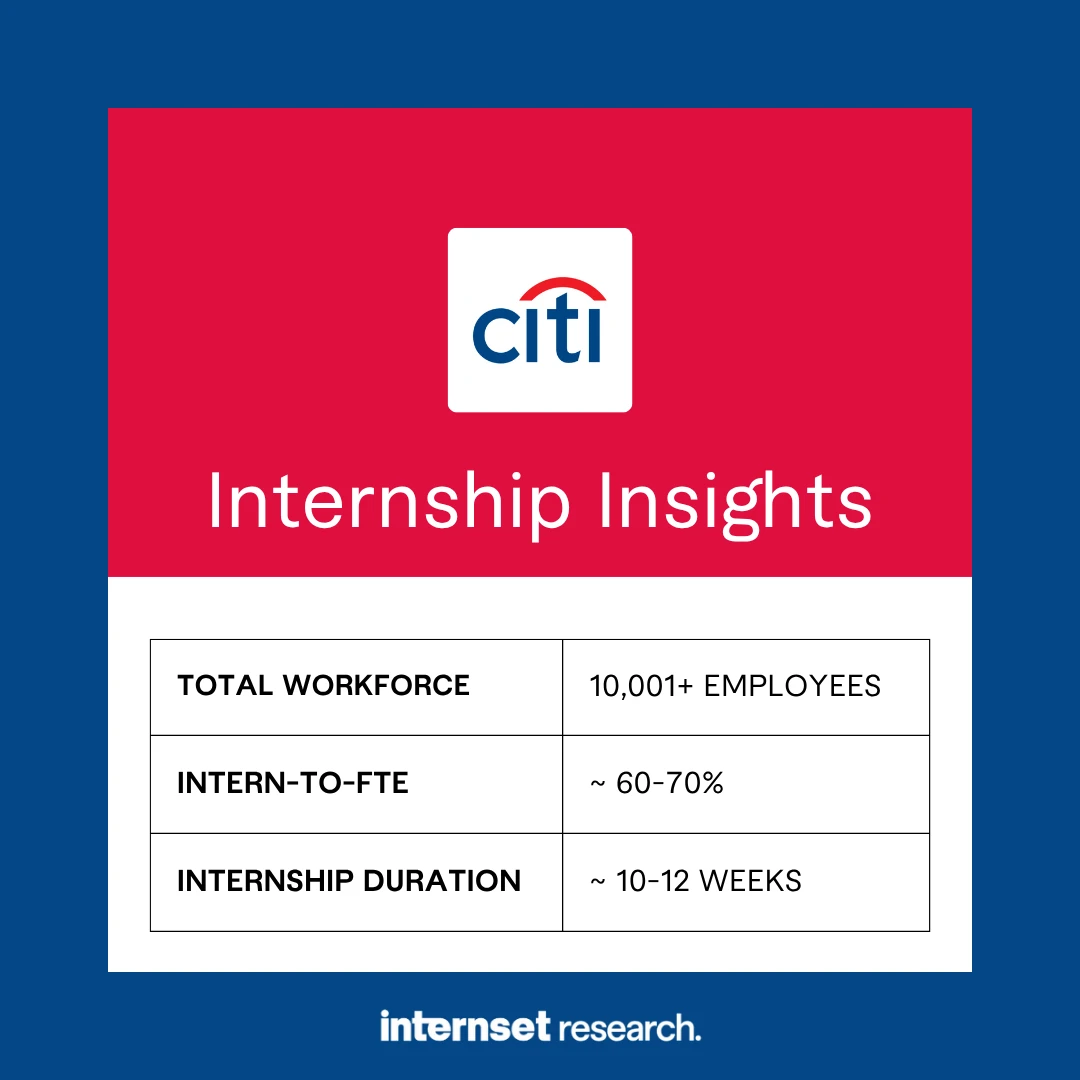


1 Popular internship programs at Citi
As one of the world’s leading financial institutions, Citi provides interns with exposure to real-world projects, mentorship from industry experts, and the opportunity to develop critical skills in a fast-paced, high-impact environment. Whether you're interested in investment banking, corporate finance, risk management, or technology, Citi's internships serve as a strong foundation for launching a successful career in the financial sector.
1.1 Summer Analyst Program
This 10-week internship is one of Citi’s flagship programs for undergraduate students pursuing careers in finance, operations, or technology. Interns are assigned to high-impact teams where they work on live transactions, financial modeling, risk assessment, or client research—depending on the division. Each participant benefits from Citi’s global training curriculum, regular feedback sessions, and direct exposure to clients and senior team members. Those who perform well are often fast-tracked to receive full-time return offers.
1.2 Summer Associate Program
Targeted at MBA candidates and other advanced degree holders, this program is designed to simulate the responsibilities of a first-year associate. Interns are given real ownership of deliverables such as market analysis, pitchbook creation, or operational improvements. They participate in executive briefings, cross-border deal discussions, and are matched with senior mentors to guide them through their 10-week journey. Successful interns are considered for full-time Associate roles in investment banking, capital markets, or Citi’s leadership development pipelines.
1.3 Full-Time Analyst Program
A two-year development track for undergraduates entering the financial world. This program provides rotational exposure to different business lines such as Global Markets, Treasury and Trade Solutions, or Enterprise Infrastructure. Analysts gain deep insights into Citi’s operational scale while receiving formal training in Excel modeling, financial statement analysis, compliance, and client management.
1.4 Full-Time Associate Program
Ideal for advanced degree holders entering mid-level positions, this program emphasizes leadership readiness from day one. Associates join a specific desk or vertical (such as corporate strategy, private banking, or risk analytics) where they’re given ownership of high-stakes deliverables and expected to contribute as future decision-makers. Participants benefit from rotational networking, advanced leadership training modules, and direct oversight from MD-level mentors. This program is the launchpad for Citi’s next generation of senior executives.
1.5 Apprenticeship Program
Citi’s apprenticeship route is designed to break barriers to entry in financial services. Geared toward individuals without traditional degrees, it combines real job responsibilities with structured classroom learning. Apprentices receive a salary, access to Citi’s internal certification programs, and the chance to convert into full-time roles upon completion. This program often spans technology support, operations, compliance, or customer service divisions, and has proven especially impactful in local talent development initiatives across Citi’s global offices.
1.6 Early ID Leadership Program
2 Popular roles for interns at Citi
1. Investment Banking Analyst: Interns in Citi’s Investment Banking division directly contribute to live deal execution. They support the creation of detailed financial models for valuations, mergers, and acquisitions (M&A), and debt or equity offerings. Deliverables often include client pitch decks, comparable company analysis, precedent transaction research, and discounted cash flow models.
2. Markets Analyst (Sales & Trading): Interns in Citi’s Markets division rotate across trading desks, sales teams, and research groups. They track market movements, assess macroeconomic indicators, and produce analytical reports that help traders and salespeople make real-time decisions. Depending on the desk, interns may help execute fixed-income, equities, commodities, or FX trades. Exposure to derivatives pricing, yield curve modeling, and electronic trading tools makes this role highly quantitative and fast-paced, ideal for those with a strong foundation in economics, math, or statistics.
3. Corporate Banking Analyst: Interns in Corporate Banking work with Relationship Managers to serve institutional clients across industries. They help prepare credit memos, analyze client financials, and contribute to internal risk assessment processes. Projects often involve market research for client industries, preparing internal business updates, and supporting the structuring of complex financing solutions including revolving credit lines or term loans.
4. Technology Analyst: Tech interns at Citi are embedded in teams building critical infrastructure for banking, trading, and cybersecurity. Depending on the role, interns may work on automating processes using Python, designing APIs, enhancing data visualization dashboards, or testing mobile banking features.
5. Finance Analyst: Interns in Citi’s Finance division assist in budgeting, forecasting, liquidity management, and regulatory reporting. Tasks include working with financial control teams on reconciliations, supporting treasury operations in monitoring cash positions, or assisting tax teams with compliance research.
Related articles:
1. How does the Citi internship process compare to Goldman Sachs and Deutsche Bank?
2. What’s the most effective way to get a job as an analyst at a big investment bank or hedge fund?
3. What should I do to get internships in finance as a final-year BBA student?